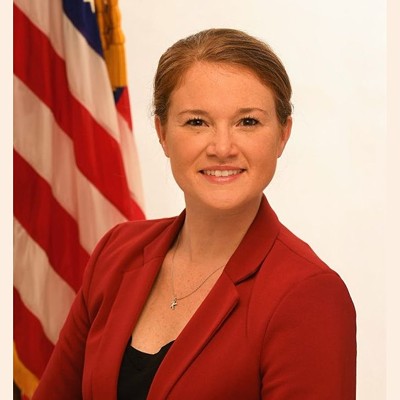ON JUNE 20, Jennifer Colestock surprised some people. She was representing Savannah's cyclists in the fifth annual Dump the Pump Challenge, a commuting race against a Chatham Area Transit bus rider and an automobile driver. Like Frank McIntosh and Kristin Mulzer, who rode for the Savannah Bicycle Campaign in previous years, Colestock was first to arrive at City Hall.
In fact, she rolled up unexpectedly while preparations were still being made at the finish line, having made the trip in less than 15 minutes on a steel frame, single speed bicycle. Bill Broker, who caught a CAT, arrived about 5 minutes later, briefcase in hand. City of Savannah Management Services Bureau Chief Sean Brandon drove from Midtown to Downtown and finally crossed the finish line about 2 minutes after Broker.
I knew Colestock to be a strong cyclist, but I was surprised at how quickly she travelled from Twelve Oaks Shopping Center to the intersection of Bull and Bay streets.
Sadly, what is probably more surprising to many is that someone would choose to ride her bike to work (or in the case of Broker, the bus). Well, guess what: Get ready for more surprises. Americans' attitudes about transportation are changing.
I grew up in South Georgia, and in the years before I was old enough to drive a car, I spent hours and hours building plastic models of them. I couldn't sleep the night before I got the keys to a 1968 Mustang. The car was 16 years old, just like me, but had lived a much harder life up to that point.
I was an inexperienced driver in command of a vehicle with a 289 cubic inch V-8 engine, a master cylinder that constantly hemorrhaged brake fluid and a loosey–goosey steering box (I could turn the wheel 45 degrees in either direction without altering the path of the car).
Looking back and remembering my maturity level, it seems crazy that the state of Georgia would license me to do such a thing.
To some young adults reading this, it probably seems crazy that I was so wild about a car and so willing to pour into it the meager wages I earned at after school jobs.
Our national obsession with cars is still very powerful, no doubt. Just watch an hour of local television and count the number of commercials for car dealerships, insurance companies, title pawn operation, drive through fast food joints and automobile accident attorneys.
However, growing numbers of young people are less responsive to the car's appeal. A report released last month by the Frontier Group, "A New Direction: Our Changing Relationship with Driving and the Implications for America's Future," presents some interesting findings. It concludes, "Young people aged 16 to 34 drove 23 percent fewer miles on average in 2009 than they did in 2001 – a greater decline in driving than any other age group."
In addition, another Frontier Group study found that during the same period, bicycling among this group was up 24 percent, walking was up 15 percent and transit miles travelled were up 40 percent.
The Frontier Group suggests young people's transportation choices are also showing up in their preference for less car-centric communities. If you are skeptical of analysis by a think tank "producing ideas and research to promote a cleaner environment and a fairer and more democratic society," consider that the American Association of Realtors reached a similar conclusion.
In "How Millennials Move: The Car-Less Trends," published last year, the real estate trade group reports "Millennials own fewer cars and drive less than their predecessors. They'd rather walk, bike, car-share, and use public transportation — and want to live where that's all easy."
As she congratulated Colestock for her victory, Savannah Mayor Edna Jackson said, "Once again this race has opened our eyes to the fact that driving is not always the quickest way to commute, and it's definitely not the cheapest. I hope this encourages some of our citizens to trying dumping the pump from time to time."
I agree with her 100 percent. More Savannahians should consider going by bike or by bus, even if they still drive much of the time.
But for more and more Savannahians and their peers across the country, riding a bike or the bus is not something they do only from time to time. They do it most or all of the time.
For them, what we call "alternative transportation" is simply... transportation.


























